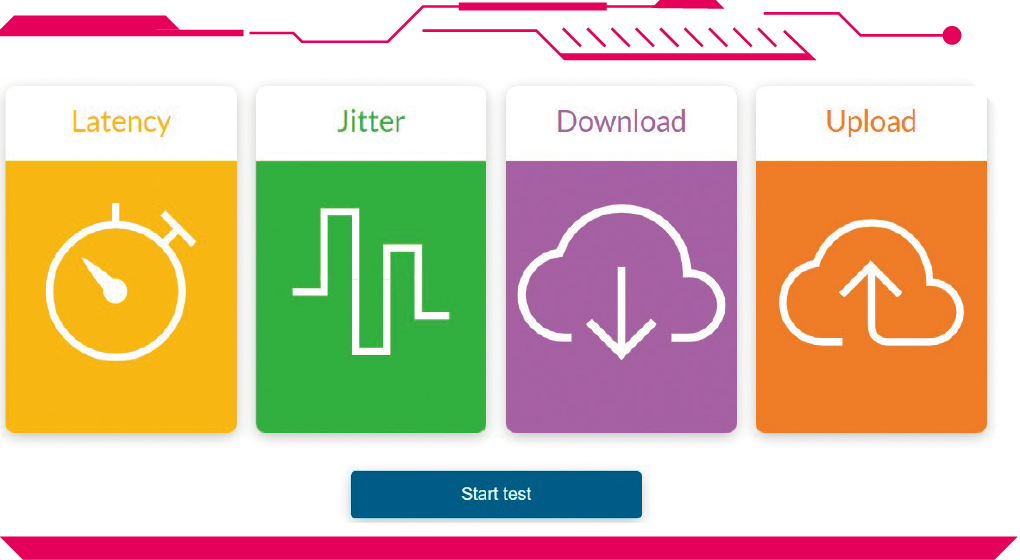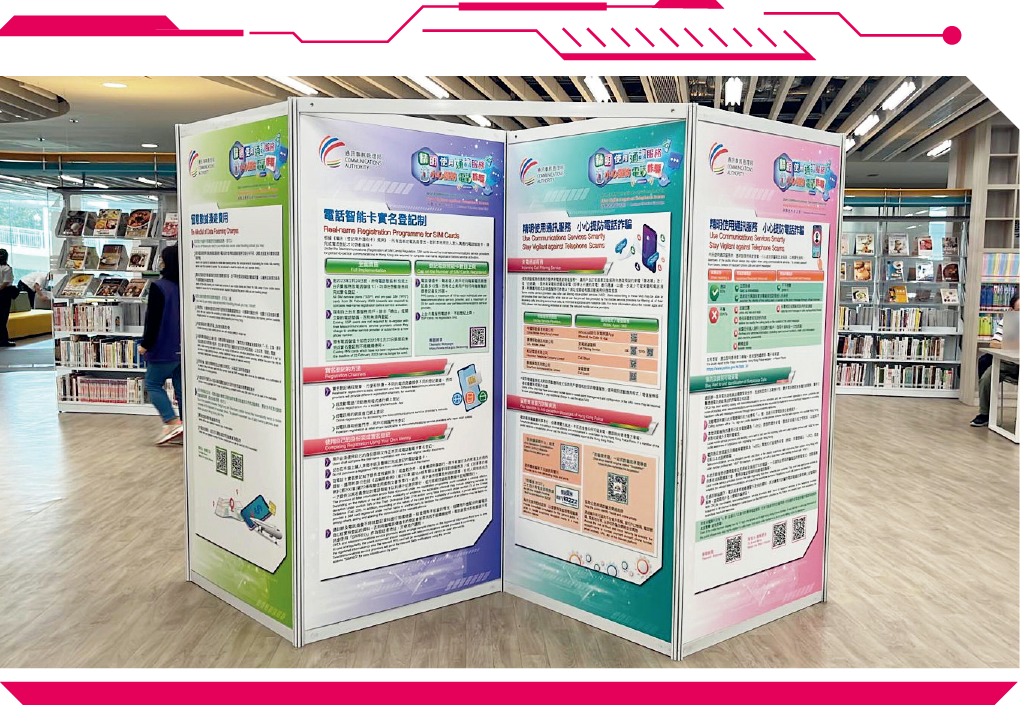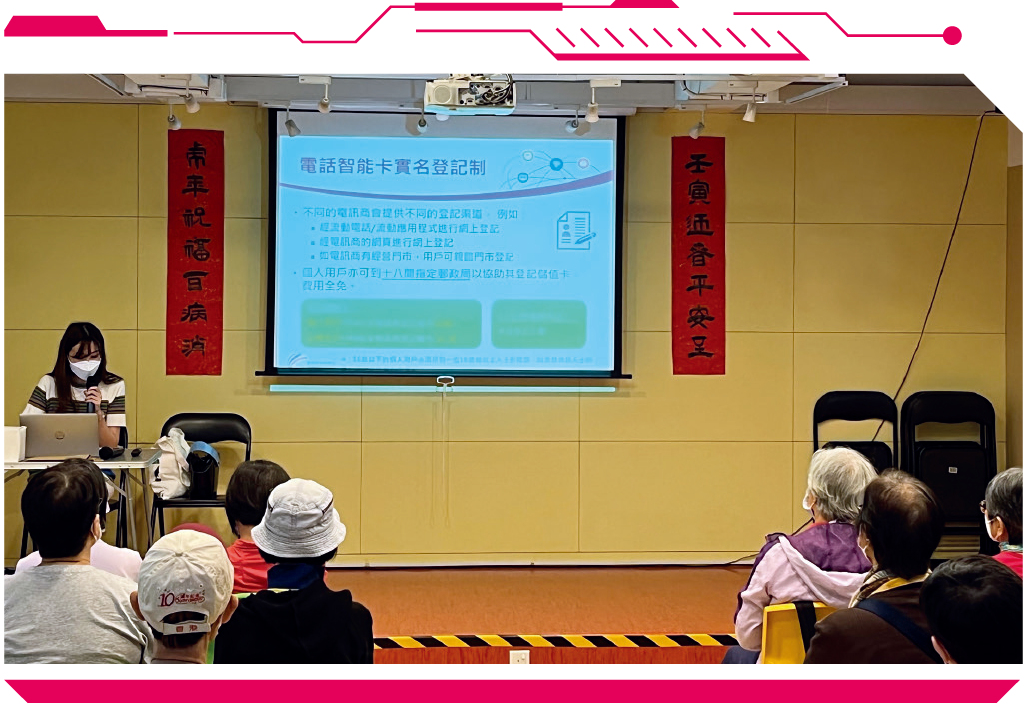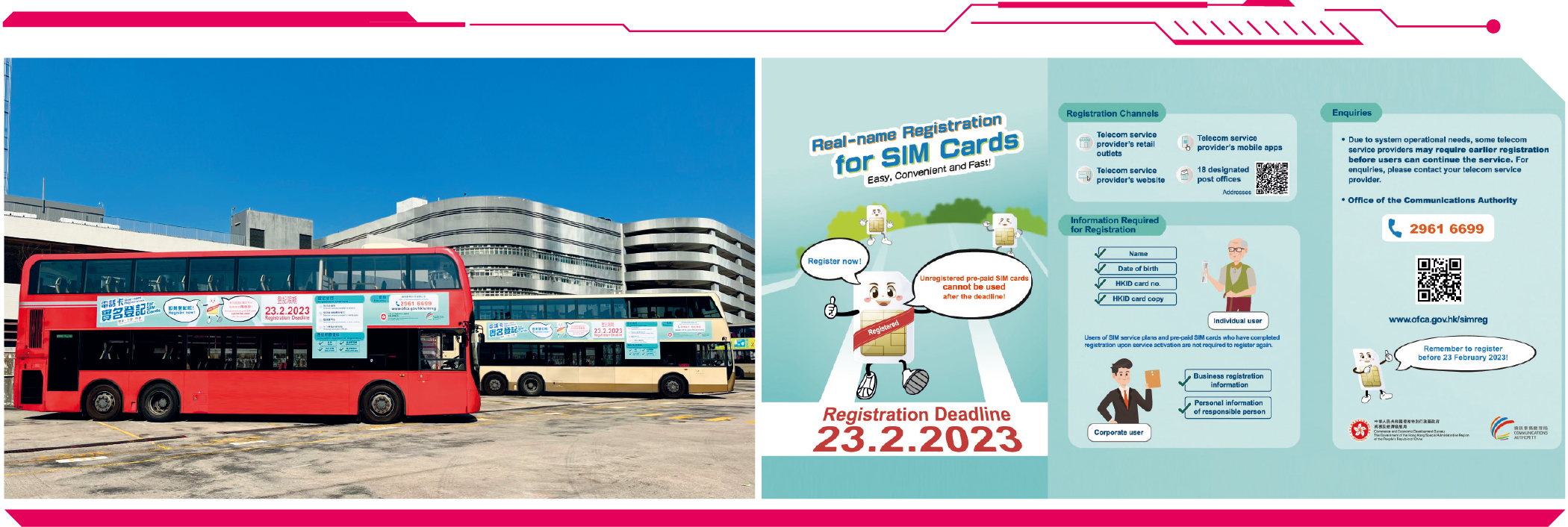
The Competition Ordinance (Cap. 619) (CO) provides a cross-sectoral competition law prohibiting anti-competitive conduct in all sectors. Under the CO, the CA is conferred concurrent jurisdiction with the Competition Commission to enforce the CO in respect of the conduct of undertakings operating in the telecommunications and broadcasting sectors, including merger and acquisition activities involving carrier licensees in the telecommunications sector.
Pursuant to the memorandum of understanding signed by the CA and the Competition Commission, the CA will ordinarily assume the role of the lead authority for matters falling within the concurrent jurisdiction. For matters involving issues that are partly within and partly outside the concurrent jurisdiction, the CA and the Competition Commission will discuss and agree on the best arrangement in handling the matter on a case-by-case basis.

From 1 April 2022 to 31 March 2023, a total of 13 complaints and enquiries were received under the CO, out of which 12 cases were closed without the need for further action and one case is being processed.
During the year, OFCA also assisted the CA in reviewing one transaction under the merger rule of the CO, and no further action was considered necessary in respect of the transaction.
The fair trading sections of the Trade Descriptions Ordinance (Cap. 362) (TDO) prohibit certain specified unfair trade practices by traders in the provision of goods and services to consumers.
The CA is conferred concurrent jurisdiction with the Customs and Excise Department to enforce the fair trading sections of the TDO regarding the commercial practices of licensees under the TO and the Broadcasting Ordinance (Cap. 562) directly connected with the provision of telecommunications and broadcasting services. The two enforcement agencies have entered into a memorandum of understanding to coordinate the performance of their functions under the fair trading sections of the TDO and have issued a set of enforcement guidelines to provide guidance for traders and consumers regarding the operation of the fair trading sections.
From 1 April 2022 to 31 March 2023, OFCA handled a total of 291 complaints under the TDO, of which 249 were closed due to insufficient evidence to establish the occurrence of a contravention or because they fell outside the scope of the TDO. Three were closed after the CA issued advisory letters to the licensees concerned to bring the subject matter to their attention with advice for improving their relevant commercial practices in relation to the sale, supply or promotion of telecommunications or broadcasting services to consumers, and the remaining 39 were under processing.
The CA has established three Do-Not-Call (DNC) Registers, for facsimile messages, short messages and pre-recorded telephone messages respectively under the Unsolicited Electronic Messages Ordinance (Cap. 593) (UEMO). No commercial electronic messages (CEMs) shall be sent to registered telephone numbers unless the senders have obtained consent from the registered users. As of March 2023, more than 2.7 million telephone numbers were registered with these three DNC Registers. Apart from not sending CEMs to the registered telephone numbers on the DNC Registers, senders of CEMs are also required under the UEMO to comply with a number of rules. For example, they must provide the recipients with their contact information and an “unsubscribe facility” in their CEMs so that the recipients can approach the senders and unsubscribe from receiving their CEMs.
In 2022/23, OFCA received 540 reports regarding suspected contraventions of the UEMO, an increase of about 4% from the previous year. A majority of these reports were related to short messages, pre-recorded telephone messages and email messages. OFCA will continue to monitor the compliance situation and streamline the procedures for more effective enforcement.
OFCA will take enforcement actions on cases suspected of contravening the UEMO. Generally speaking, for cases where the number of reports received against a sender is below a certain threshold, OFCA will issue an advisory letter reminding the sender to observe the requirements under the UEMO. As regards cases where the number of reports received against a sender exceeds the threshold, or if OFCA continues to receive reports against the same sender after the issuance of advisory letter, OFCA will conduct formal investigation and may issue warning letter to the sender. In 2022/23, a total of 69 advisory letters and 20 warning letters were issued. Cases where senders of CEMs who have rectified their breaches after receiving advisory letters or warning letters will not be proceeded for further enforcement actions like enforcement notices issued to the senders of CEMs.
In the event of repeated contraventions by a sender of CEMs, the CA may issue enforcement notice in accordance with section 38 of the UEMO directing the sender to take steps to remedy the contravention. Anyone who fails to comply with an enforcement notice may be liable to a fine of up to HK$100,000 on the first conviction.
To safeguard consumer interests in the use of telecommunications services, OFCA takes proactive actions to implement various consumer protection measures and works with the industry to draw up and implement self-regulatory measures for addressing new consumer issues that may arise from time to time.
These measures include the voluntary Customer Complaint Settlement Scheme (CCSS) administered by the Communications Association of Hong Kong representing the industry. The CCSS aims to help resolve billing disputes in deadlock between telecommunications service providers and their customers through mediation.
Other self-regulatory measures voluntarily implemented by the industry include the promulgation of the Code of Practice for Telecommunications Service Contracts to improve the clarity of provisions in the telecommunications service contracts as well as the Code for the Provision of Chargeable Mobile Content Services to govern the practices of third-party content service providers.
Other examples include the implementation of mobile bill shock preventive measures as well as publication on OFCA’s website details of the arrangements adopted by major residential broadband service providers to handle service termination requests from consumers.
OFCA will continue to monitor the implementation and effectiveness of the various consumer protection measures adopted and where necessary, engage the industry to seek further improvement of the existing measures or introduce new measures.
Since December 2010, OFCA has been providing a broadband performance test system which enables broadband service users to measure the performance of their broadband connections, including download and upload speeds, network latency, packet loss and jitter. Apart from users of desktop and notebook computers, users of smart phones and tablets running iOS and Android operating systems may also make use of the test system.

OFCA Broadband Performance Test System is designed to handle broadband performance tests within the territory of Hong Kong and enables broadband service users to measure the performance of their broadband connections.
OFCA reviews and upgrades the test system from time to time to enhance its capability and performance. Currently, it supports speed tests of up to 10 Gbps for desktop and notebook computers and up to 3 Gbps for iOS-based and Android-based mobile devices. From service launch to March 2023, more than 118 million broadband performance tests were conducted via the system.
During the year, OFCA continued its publicity efforts in enhancing public awareness of smart use of communications services. Various programmes and activities under the annual Consumer Education Campaign (the Campaign) were organised on how to use communications services wisely and with caution. Following the resumption of normalcy post-COVID pandemic, OFCA resumed the organisation of physical publicity activities, including roving exhibitions at shopping centres, mini exhibitions at public libraries and government offices. To facilitate members of the public to receive consumer messages anytime and anywhere, a new online exhibition website (www.ofca.gov.hk/exhibition) was officially launched in April 2023. Display panels with different consumer messages, online game and the latest news of the Campaign are available on the website for public access. In addition, a public seminar in hybrid mode, a series of community talks at elderly centres, school talks and drama performances were held under the Campaign.


OFCA actively organises the consumer education campaign every year to educate the public about smart use of communications services.
In view of the rising trend of frauds conveyed over telecommunications networks, OFCA made joint efforts with the Police during the year to arouse awareness of the public on fraudulent calls. This is also important to safeguard the integrity of telecommunications services and the security of communications networks. Apart from giving presentations at community talks, representatives from the Police also participated in the roving exhibitions and public seminar to deliver anti-scam messages. To enhance the public awareness of suspicious calls originating from outside Hong Kong, a new set of television and radio announcements in the public interest (APIs) on the sending of voice or text alert for incoming calls prefixed with “+852” by all MNOs in Hong Kong was launched in May 2023.

In support of the roving exhibition, officers from the Anti-Deception Coordination Centre and CyberDefender of the Police took part in the event to elaborate some common fraud typologies and educate the public to stay vigilant against deception when using communications services.
On the 5G front, in order to showcase the accomplishments of the “Subsidy Scheme for Encouraging Early Deployment of 5G”, a public seminar titled “5G Makes the Impossible Possible – Experience-sharing Seminar on the Applications of 5G Technology” was held on 12 December 2022. Representatives of grantees of the scheme were invited to share their 5G deployment experience with more than 220 online and onsite participants. Two short videos were also produced to promote how 5G technology could be used to improve business operations and bring benefits to the society as a whole. During the year, OFCA produced three sets of new TV and radio APIs on different themes, namely “5G Makes the Impossible Possible”, “Five Main Points on Subscription to 5G Service Plans” and “Optical Fibre Access Enables Smart Living for All”.

OFCA launches a series of TV APIs and short videos to promote different consumer messages, including APIs on “Optical Fibre Access Enables Smart Living for All”, “5G Makes the Impossible Possible”, “5 Main Points on Subscription to 5G Service Plans” and a short video on 5G applications.
From late September 2022 to February 2023, OFCA launched a comprehensive publicity campaign on Real-name Registration for SIM Cards to remind existing PPS card users, especially the elderly and other needy groups, of the registration deadline on 23 February 2023. The campaign consisted of a wide array of publicity programmes and activities, such as broadcast of a 30-second TV trailer and a one-minute short video, engaging various community groups and NGOs in providing registration support for target needy groups, mass distribution of leaflets and posters by multiple channels, issuance of press releases and consumer alerts, media interviews, advertisement on MTR, buses and trams, as well as other media channels such as popular infotainment TV programmes, social media platforms, radio channels, websites and newspapers.

OFCA promotes Real-name Registration Programme through various channels.